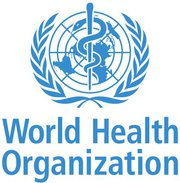Launch of WHO India Country Cooperation Strategy 2019–2023: A Time of Transition
The Country Cooperation Strategy (CCS) layout a strategic road-map for the World Health Organization (WHO) to work with the Government of India towards achieving its health sector goals, to improve the health of its population, and also to bring in transformative changes in the health sector.
Four areas have been identified for strategic cooperation of WHO with the country encompass:
- To speed up the progress on Universal Health Coverage
- To promote wellness and health by addressing determinants of health
- To safeguard the population better against health emergencies
- To raise India’s global leadership in health
Apart from the health priorities detailed in the strategy, the focus needs to be given on other equally important health areas of occupational and environmental health, road injuries, accidents, good nutrition, and food safety.
Targets of World Health Organisation:
This is a strategic plan which has to be implemented for the next five years
The Aims are:
- More one billion people will be protected from health emergencies
- More one billion people to be benefitted from the Universal Health Coverage (UHC)
- More one billion people to be covered for better health & well-being.
The implementation of this Country Cooperation Strategy will bring remarkable successes in public health that India has demonstrated to the world. It is an amazing opportunity to showcase India as a role model to the world in initiatives such as digital health, medical products, access to quality medicines, comprehensive hepatitis control programs, and Ayushman Bharat. The government has to institutionalize a mechanism wherein every ministry has a health department/ section.
The Country Cooperation Strategy not only builds upon the work that World Health Organization has been supporting out in the last few years, but also addresses complex challenges–such as the control of antimicrobial resistance (AMR), the prevention of NCDs, the reduction of air pollution, and the prevention and treatment of mental illnesses. World Health Organization will further extend its collaboration with a wider set of government sectors and other stakeholders beyond health, under the overall guidance of the Ministry of Health and Family Welfare, as well as continue to work collaboratively with other agencies of the United Nations (UN) and international partners.
The India Country Cooperation Strategy is one of the first strategies that fully align itself with the newly adopted World Health Organisation 13th General Programme of Work and it’s the Sustainable Development Goals (SDGs), ‘triple billion’ targets, and WHO South-East Asia Region’s eight Flagship Priorities. It seizes the work of the United Nations Sustainable Development Framework for 2018–2022. The Country Cooperation Strategy would outline how the WHO can support the Ministry of Health & Family Welfare and other allied ministries to drive impact at the country level. The Country Cooperation Strategy document builds on other important strategic policy documents including India’s National Health Policy 2017. The various path-breaking initiatives that were introduced by India are—Ayushman Bharat, Eat Right India Movement, National Viral Hepatitis Program, Fit India Movement, Poshan Abhiyaan, and promotion of digital health amongst others have collectively engaged the population of India and also increased the awareness about important health areas.
World Health Organisation’s technical support to the Government of India will fall under the following four strategic priorities to contribute to India’s health agenda:
Strategic Priority 1: Accelerate progress on UHC
- Monitoring and evaluation of the health sector performance in India
- Implementing Ayushman Bharat: Health and Wellness Centre’s and hospital insurance scheme
- Improving access to priority health services such as maternal and child health, immunizations, tuberculosis, and hepatitis
- Digital health ecosystem
- Eliminating neglected tropical diseases and control of vaccine-preventable and vector-borne diseases
Strategic Priority 2: To promote health and wellness by addressing the determinants of health
- Non-communicable diseases (NCDs) action plan roll-out
- Mental health promotion and suicide prevention
- Environmental health, including air pollution
- Nutrition and food safety
- Tobacco control
- Road safety
- Integration of Non-communicable diseases and environmental risk factors in the digital health information platform
Strategic Priority 3: To protect the population against health emergencies
- Roll-out of the integrated disease surveillance program using the real-time Integrated Health Information Platform (IHIP)
- Disease surveillance, outbreak detection, and response, including the International Health Regulation
- Preparedness for, and response to all, emergencies
- Containment of antimicrobial resistance
Strategic Priority 4: Enhance India’s global leadership in the health sector
- Development and information sharing of the latest developments in health practices and technologies including Integrated Health Information Platform
- Improving access to medical products of assured quality, that are made in India
- Strengthening India’s leadership in digital health
Country Cooperation Strategy is expected to bring about a rapid and significant change to India’s Health sector and will also improve access to quality health care, especially to the underserved and vulnerable populations.






















I’d always want to be update on new content on this internet site, saved to favorites! .
Thank you
I like the helpful info you provide in your articles. I will bookmark your weblog and check again here regularly. I am quite certain I’ll learn a lot of new stuff right here! Best of luck for the next!
Wow! This blog looks exactly like my old one! It’s on a totally different topic but it has pretty much the same layout and design. Outstanding choice of colors!
This blog is definitely rather handy since I’m at the moment creating an internet floral website – although I am only starting out therefore it’s really fairly small, nothing like this site. Can link to a few of the posts here as they are quite. Thanks much. Zoey Olsen